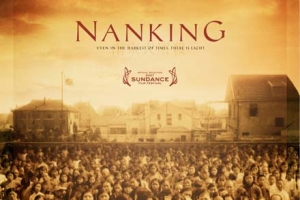HONG KONG - An American movie about Japan's mass slaughter of Chinese citizens in the World War II era will be released in China next week amid renewed friction between the countries over the atrocity's actual death toll.
"Nanking" will premiere in Beijing on July 3 and be released across in China on July 7, the film's publicists said Monday.
The movie examines the Japanese killings by mixing archival footage and actors' readings of witness accounts from Westerners who protected Chinese refugees. Among the actors are Woody Harrelson and Mariel Hemingway.
Historians generally agree the Japanese army slaughtered at least 150,000 civilians and raped tens of thousands of women in the rampage in Nanjing in 1937 that became known as "The Rape of Nanking," using the name by which the city was known in the West at that time.
About 100 Japanese ruling party lawmakers drew criticism from China after saying last week that documents from their government's archives indicated only about 20,000 people were killed in the 1937 attack.
The head of the group accused China of inflating the number of victims for propaganda purposes.
In response, a Chinese Foreign Ministry spokesman said 300,000 people died in the massacre and accused the lawmakers of ignorance.
Anti-Japanese feeling over the Nanjing atrocities remains strong in China. Demonstrators vandalized Japanese shops and smashed windows at Japanese diplomatic offices in Shanghai and Beijing in April 2005 to protest alleged whitewashing of atrocities in Japanese textbooks.
Many Japanese conservatives are disgruntled over what they claim are exaggerated stories of Japanese brutality during World War II.
The film, directed by Bill Guttentag and Dan Sturman, was partly shot in Nanjing.
"Nanking" apparently has the blessing of the Chinese government, which carefully controls foreign productions either shot or released in the country.
Guttentag said in a recent interview with The Associated Press that while the directors submitted an outline of the movie to the Chinese government, local authorities did not interfere with its editorial direction.

















